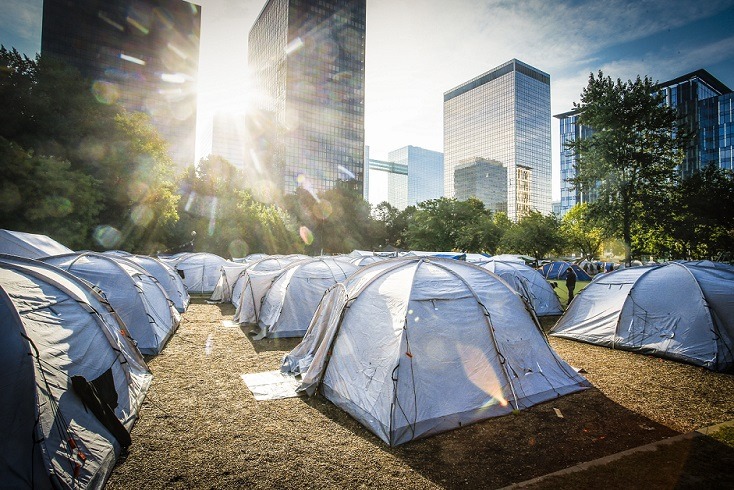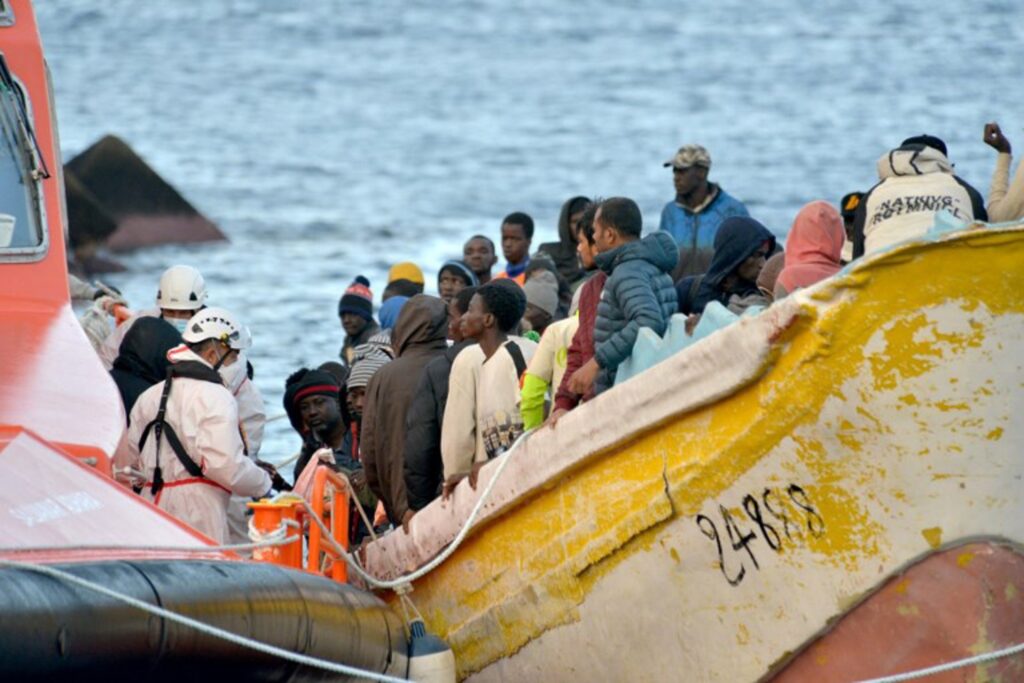Negotiations that stretched into the early hours of the morning have culminated in a comprehensive reform to the European Union's migration and asylum policy.
Talks between the European Parliament and Member States on reforms came to a head this week after almost 10 years of failing to find a compromise on the deeply divisive subject.
The final result signals Europe's harder stance on migration and introduces a number of procedures that speed up the asylum process as well as deportations of those unsuccessful in their claim.
Contentious points include the screening of arriving migrants as young as six using fingerprints and facial recognition, an increase in detentions on European borders, and vague definitions of what constitutes a "safe third country" when returning rejected asylum seekers.
"This agreement will set back European asylum law for decades to come," said Eve Geddie, Director of Amnesty International's European Institutions Office.
"Its likely outcome is a surge in suffering on every step of a person's journey to seek asylum in the EU. From the way they are treated by countries outside the EU, their access to asylum and legal support at Europe's border, to their reception within the EU, this agreement is designed to make it harder for people to access safety."
It’s a historic moment #migration pic.twitter.com/pvhNtc92JA
— Ylva Johansson (@YlvaJohansson) December 20, 2023
"We did it." EU Commissioner for Home Affairs Ylva Johansson celebrates the "historic" Pact.
However, advocates of the reforms celebrate the EU's renewed emphasis on shared responsibility and solidarity between Member States through a European-wide management of migration. Commission president von der Leyen listed the arguments for the agreement in a statement.
A binding solidarity mechanism will require Member States to either take in more migrants or pay €20,000 per relocation into a "solidarity fund".
Swedish MEP and rapporteur for the Asylum and migration management regulation (AMMR) Tomas Tobé (EPP) hailed today's outcome as a "crossroads", marking a move from a fragmented response to a more coordinated way forward under the reformed framework.
At the close of the marathon trilogues this morning, EU officials expressed relief at having found a compromise. There is a palpable resolve to deliver effectively on migration ahead of elections in 2024 and prevent the far-right from making unprecedented gains in European ballot boxes.
"Delivering on this package before the end of the year is a huge success for the constructive pro-European centre," said European Parliament President Roberta Metsola.

During the peak of the refugee crisis, almost two million refugees arrived in Europe during 2015. In Brussels, a tent camp was raised in the middle of the city by the North Station. Credit: Belga
'Ill-functioning, costly, and cruel'
Critics have denounced the changes to migration policy as a means of enabling institutions to rush through extremely impactful legislation that erodes fundamental human rights.
In an open letter penned by over 50 human rights organisations, signatories deplored the Pact's introduction of an "ill-functioning, costly, and cruel system that falls apart on implementation and leaves critical issues unaddressed."
They say the pact will "normalise the arbitrary use of immigration detention, including for children and families, increase racial profiling, use 'crisis' procedures to enable pushbacks and return individuals to so-called "safe third countries" where they are at risk of violence, torture, and arbitrary imprisonment."
The Pact must be adopted by the Parliament and the Council before it enters into law.

